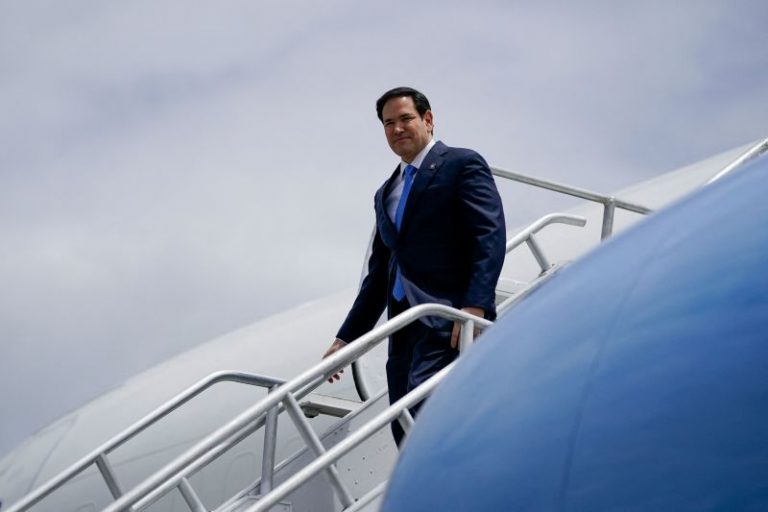Heads of state in Latin America and the Caribbean have long complained that the region is treated as an after-thought by most US administrations.
But now that the Western Hemisphere is under the microscope from the Trump administration from everything from migration to drug smuggling to human trafficking, those same leaders may be missing the old days of relative benign neglect.
US administration officials have taken to referring to the Caribbean as the US’ “third border,” another red line where the flow of drugs, illegal migration and China’s growing influence need to be countered.
“When President Donald Trump came into office, he committed to ensuring our foreign policy aligned with our nation’s interests. To realize his vision, we are putting our region, the Americas, first,” US Secretary of State Marco Rubio wrote in the Miami Herald on Saturday.
Some Latin American diplomats privately grumble that the Trump administration is ramping up pressure on their countries at the same time it cuts billions of dollars in badly needed USAID funding to the region.
The policy, they say, is more sticks and too few carrots and that the State Department under Rubio has become fixated on opposing Cuban and Venezuelan influence when other issues including the impacts of climate change, rising inequality and a gang-ravaged Haiti on the verge of collapse should take precedence.
Even before Rubio’s trip to the Caribbean region last week, it was clear that his approach would be more “bad cop” than “good cop” as Washington threatens sanctions on foreign officials from countries that hire Cuban doctors and nurses.
Punishments could include barring officials and their immediate family members from traveling to the US. It would also deprive Havana of badly needed hard currency.
During a Wednesday press conference in Jamaica, Rubio called it forced labor, saying the Cuban “regime does not pay these doctors, takes away their passports.”
But the threatened sanctions against Cuba’s medical programs led to a remarkable push back from several Caribbean and Latin American leaders.
At the same news conference with Rubio, Jamaican Prime Minister Andrew Holness said his government planned to keep using Cuban doctors and nurses in their hospitals while showing the US that the program in Jamaica operates according to international labor standards.
“In terms of Cuban doctors in Jamaica, let us be clear, the Cuban doctors in Jamaica have been incredibly helpful to us” he said as Rubio, who is Cuban-American and a staunch adversary to the government in Havana, looked on.
“Jamaica has a deficit in health personnel primarily because many of our health personnel have migrated to other countries. We are, however, very careful not to exploit the Cuban doctors who are here,” Holness continued.
Sanctions busting
The other Trump administration focus has been Venezuela. Last week, it threatened to place 25% tariffs on products of countries that purchase Venezuelan oil, sparking concerns that all-ready high energy costs in much of the region could further rise.
In February, the Trump administration canceled a Biden-era deal that allowed Venezuela to sell oil to Chevron, depriving the country of a badly needed economic lifeline.
But some of the sanctions may already be backfiring or, at least, are having unintended consequences. If the US does succeed in closing oil markets off to Venezuela, the unlikely beneficiary could be Cuba, said energy analyst Jorge Piñón.
Rather than stopping production, which is ultimately more costly to restart, Venezuela is likely to send increased oil shipments to its ally Cuba, which has been in recent months enduring some of the worst power outages in years. Previously, the cash-strapped island has paid for the shipments by sending thousands of Cuban medical personnel to work in Venezuela.
”I will not be surprised if we see an increase of Venezuelan oil deliveries to Cuba in the following months as this would keep Venezuela’s oil production flowing,” he said.
If that scenario does play out, it would have the exact opposite effect than what the White House or Rubio intended.


